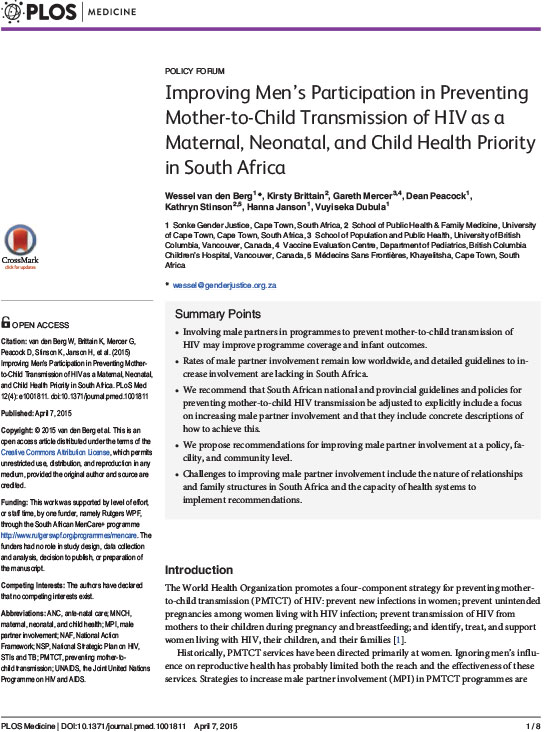- 021 423 7088
- info@genderjustice.org.za
- Whistleblower: 0800 333 059
The World Health Organization promotes a four-component strategy for preventing mother-to-child transmission (PMTCT) of HIV: prevent new infections in women; prevent unintended pregnancies among women living with HIV infection; prevent transmission of HIV from mothers to their children during pregnancy and breastfeeding; and identify, treat, and support women living with HIV, their children, and their families.
Historically, PMTCT services have been directed primarily at women. Ignoring men’s influence on reproductive health has probably limited both the reach and the effectiveness of these services. Strategies to increase male partner involvement (MPI) in PMTCT programmes are aimed at improving programme results and allowing programmes to reach more clients. Recruiting men as supportive partners in PMTCT can improve the health of women and children, better engage men in their own health, improve the communication of couples, and in- crease the participation of fathers in child health through increased proximity to the health system and to the child. For these reasons, MPI has been advanced as a priority intervention in PMTCT programmes. This article looks at the evidence of MPI, as well as the current and proposed policy dimensions of MPI in South Africa.


Sonke is a South African-based non-profit organisation working throughout Africa. We believe women and men, girls and boys can work together to resist patriarchy, advocate for gender justice and achieve gender transformation.
Please note that Sonke does not offer counselling or other support services to individuals. Click here for information on where to get help.
Sign up for the Sonke e-Newsletter to receive social justice news and views in your inbox.
Please see our Privacy Policy here.